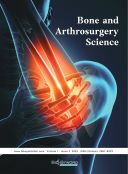Abstract
Objective: This paper aims to explore and analyze the application of group counseling based on positive psychology theory in postoperative total hip arthroplasty. Methods: From July 2021 to April 2023, 110 patients with total hip arthroplasty admitted to the Department of Traumatology and Orthopedics in our hospital were selected as subjects of this study. They were divided into study group and control group by simple random sampling, with 55 cases in each group. The study group received group counseling based on positive psychology theory, and the control group received general nursing care. Harris hip function score, activities of daily living score (ADL), Hamilton depression rating scale (HAM-D), Hamilton anxiety rating scale (HAM-A), and postoperative complications were compared between the two groups. Results: Before nursing, the Harris and ADL scores of the two groups were compared, and the difference was not statistically significant (P > 0.05). After nursing, the Harris and ADL scores of the study group were significantly better than those of the control group, the difference was statistically significant (P < 0.05). Before nursing, the HAM-D and HAM-A scores of the two groups were compared, and there was no statistically significant difference (P > 0.05). After nursing, the HAM-D and HAM-A scores of the study group were significantly better than those of the control group, and the difference was statistically significant (P < 0.05). The incidence of postoperative complications in the study group was significantly lower than that in the control group, and the difference was statistically significant (P < 0.05). Conclusion: Based on the theory of positive psychology, the effect of group counseling after total hip arthroplasty is more significant, and it is recommended to be applied in clinical practice.
References
Wen X, Yang F, 2023, The Application Value of the “Hospital-Community-Family” Triple Linkage Continuous Nursing Model in the Rehabilitation of Elderly Patients After Hip Replacement Surgery. Clinical Medicine Research and Practice, 8(13): 125–127.
Wang Z, Ren C, 2023, Effects of Step-By-Step Rehabilitation Nursing Combined with Orem’s Self-Care Theory on the Rehabilitation, Pain Mediators and Self-Management Ability of Patients After Hip Replacement. Clinical Medicine Research and Practice, 8(11): 170–172.
Liu T, Liu Y, Huang J, et al., 2023, Effect of Nursing Intervention Program Based on Transtheoretical Model on Rehabilitation Training Compliance and Rehabilitation Effect of Patients After Total Hip Replacement. Chinese Folk Therapy, 31(01): 98–100.
Liu Q, Liu X, Wang L, 2022, Effect of Continuous Nursing Based on Big Data Platform on Functional Recovery and Quality of Life of Elderly Patients After Total Hip Replacement. Chinese Contemporary Medicine, 29(27): 181–184.
Lin K, Li X, 2022, Application of Fast-Track Surgery Nursing Mode in Postoperative Nursing of Elderly Patients with Artificial Hip Replacement and its Impact on Sleep Quality of Patients. World Journal of Sleep Medicine, 9(09): 1628–1630.
Peng X, 2022, Effects of Integrated Medical Care and Nursing Care on the Mastery of Health Knowledge and the Incidence of DVT in Elderly Patients with Femoral Neck Fractures After Total Hip Arthroplasty. Dialysis and Artificial Organs, 33(02): 130–132.
Xu X, Yin W, 2022, The Effect of Targeted Nursing Based on the Concept of Rapid Recovery on the Recovery and Short-Term Complications of Elderly Patients Undergoing Surgical Stress After Hip Replacement. Shanxi Medical Journal, 51(03): 341–344.
Bi H, Ma H, 2022, The Effect of Nursing Intervention Based on Health Beliefs Combined with Mindfulness-Based Stress Reduction on the Hope Level and Psychological Resilience of Patients after Total Hip Replacement. Clinical Medical Engineering, 29(02): 249–250.
He D, 2021, Study on the Clinical Intervention and Effect of Rapid Recovery Nursing in Patients with Femoral Neck Fractures Undergoing Total Hip Replacement. Shanxi Medical Journal, 50(6): 1048–1049.
Li M, 2021, Effects of Three-Dimensional Nursing Combined with Rehabilitation Training on Joint Function and Prognosis of Patients with Femoral Neck Fracture Undergoing Total Hip Arthroplasty. Modern Journal of Integrated Traditional Chinese and Western Medicine, 030(031): 3512–3515.
Zhang Z, Zuo C, 2021, The Effect of Perioperative Nursing Based on the Concept of Accelerated Recovery Surgery on the Rapid Postoperative Recovery of Patients Undergoing Total Hip Arthroplasty. Chinese Medicine and Clinic, 21(20): 3487–3489.
Yuan Y, Song H, Lin Y, et al., 2023, Effects of Preventive Nursing on Hypothermia in Elderly Patients Undergoing Total Hip Replacement on Perioperative Blood Loss, Coagulation Function and Stress Response. Geriatrics and Health Care, 29(1): 100–104.
Zhou Q, Zhou Y, Li L, et al., 2020, The Application of Whole-Course Nursing Care in the Nursing of Patients with Femoral Neck Fractures in Hemihip Replacement Surgery and its Impact on Patients’ QOL Scores. Guizhou Medicine, 44(3): 494–496.
Feng S, Chen L, 2020, Analysis of the Effect of Perioperative Nursing Measures of Accelerated Recovery Surgery on the Rehabilitation of Elderly Patients with Primary Unilateral Total Hip Replacement. Journal of Guangxi University: Natural Science Edition, 45(4): 841–847.
Shi L, Liu Y, Zhou Y, et al., 2020, Intervention Study of Standardized Pain Management on Pain Outcome and Hip Joint Function in Patients Undergoing Artificial Hip Replacement. Chinese Journal of Practical Nursing, 36(30): 2331–2337.
